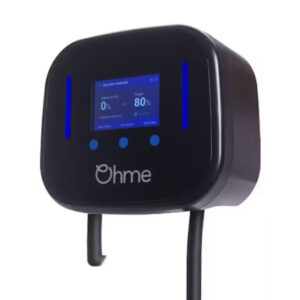How much does it cost to charge an electric car part 2?
Several people asked me to expand on this subject, and cover things like using a 3-pin plug rather than a fast 7Kw home charger, what if you’ve got solar panels, what if you’ve got solar panels with battery storage and what if you use discounted electricity tariffs.
Charges for using a 3-pin plug is easy. It costs the same (circa £10) to charge your electric car to a full battery from empty as using a fast 7.4Kw home charger, although it takes 3 times longer (24 hours).
Solar panels can make a huge difference and make it free to charge your EV, if you charge during the day, as solar panels don’t work when the sun goes down.
Solar panels combined with battery storage is the optimum solution for charging EV’s at night.
The battery storage collects and stores the energy created by the solar panels during the day and allows you to use it at night. But you need a charge point that has this functionality.
It used to be just a few niche electricity providers like Octopus Energy who had special night-time charging rates for EV charging, but all the major players have now entered the market.
British Gas has ‘Electric Drivers June 2022’ which has reduced rates between 12 & 5am.
EDF offer 2 packages branded ‘GoElectric’, which both offer different off peak charging deals.
Octopus Energy’s is called ‘Octopus Go’, giving cheaper rates between 12:30 & 4:30am with no tie in.
‘e.on Charge’ fixes both your electricity & gas for a year and gives you £30 cash back after 6 months.
ScottishPower are even getting in on the act, although you need to be an existing customer before you can get their discounted rate.
An electric car is at least 75% cheaper to fuel then a petrol or diesel car, savings increase to 80% when using reduced energy tariffs, and hit 100% if using solar panels (for day charging) or with battery storage (for night charging).
…next time, maybe we’ll cover how much it costs to charge on the go!


